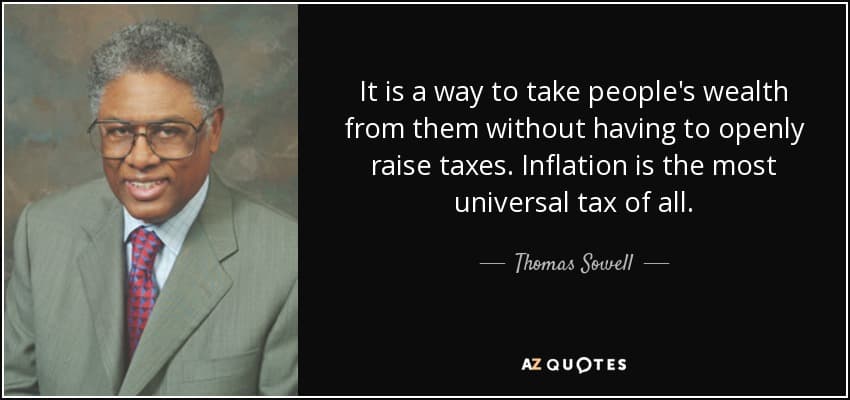Inflation's Hidden Toll: How Monetary Expansion Erodes Savings and Transfers Wealth

Inflation acts as a "hidden tax" that silently diminishes the purchasing power of accumulated wealth, effectively transferring it to the government through the issuance of new money. This economic phenomenon, articulated by economist Thomas Sowell, highlights how monetary policy can inadvertently tax citizens without explicit legislative action. The erosion of savings impacts individuals across all income brackets, but often disproportionately affects those with fewer assets to hedge against rising prices.
“Inflation is in effect a hidden tax. The money that people have saved is robbed of part of its purchasing power, which is quietly transferred to the government that issues new money,” stated Thomas Sowell.
Sowell's perspective underscores that unlike direct income taxes, inflation reduces the real value of money already earned and saved. When a government expands the money supply, the increased currency in circulation devalues existing money, meaning each unit can purchase fewer goods and services. This process allows the government to finance its expenditures with newly created money, effectively drawing resources from the public's diminished purchasing power.
Historical examples, such as the Weimar Republic in the 1920s, illustrate the extreme consequences of hyperinflation, where life savings could become worthless. While most inflation does not reach such levels, even moderate rates can significantly erode wealth over time. For instance, a sum of money held over decades can lose a substantial portion of its buying capacity, as demonstrated by the fact that a $100 bill from the late 20th century might buy less than a $20 bill from 1960.
Economists note that governments often resort to expanding the money supply, sometimes through mechanisms like quantitative easing, to finance deficits or stimulate economies. This approach can be seen as an easier political path than raising direct taxes, yet it results in a universal tax that affects everyone. The poor and middle class are particularly vulnerable, as they often lack the means to invest in assets like real estate or gold that can better retain value during inflationary periods.